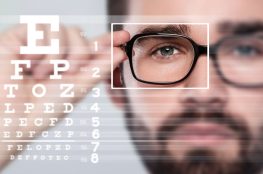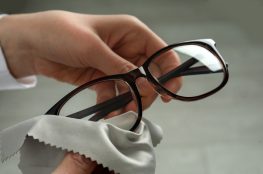Optometrist Sydney CBD
In this age of the internet we have all grown accustomed to questioning the supposed facts and opinions that we encounter. We all realize that there are some honestly mistaken and plain dishonest ideas online. But really, there have always been mistaken dishonest ideas around, it’s just that we are more inclined to believe something when we see it on print; articles on the internet look convincing, even when they are inaccurate or just plain wrong.
There are a quite few myths about eyesight, either told as old wives’ tales or spread on internet chat sites. It helps to separate the facts from the fiction.
Reading in a Dim Light
Many of us were told by our parents that reading in dim light, perhaps reading with a flashlight under the bed covers at night, would ruin our eyes. This is greatly exaggerated. Dim light will not cause any real damage, even as it may cause the eyes some temporary strain. Though it should be pointed out that dim light apparently hinders memory, so it is a bad idea to study with a dim light.
Carrots will improve eyesight
A myth. A lack of good nutrition will compromise our eyesight. A healthy diet, including a few carrots, will help us keep the eyesight we have. But nothing we eat will improve eyesight.
The British military in World War two spread this myth about carrots benefiting eyesight to hide the fact that they secretly developed and used radar. The myth probably never did any harm.
Sunlight on a Cloudy Day
The Sun will radiate UV light at all times. Over time this will steadily damage our eyes. Cloudy days are not quite as intense as a sunny days, but they will still cause damage. In fact they may cause more damage because we don’t expect a threat.
Avoid looking at the Sun, even if you feel no discomfort the UV light is causing harmful. Wear UV proof sunglasses during the day. Only the early morning and late evening are safe from UV.
You Need the right prescription Glasses.
This one is true. If the prescription of our glasses is wrong it will lead to eyestrain, and steadily cause damage. Even slight error in the prescription have an effect. So do not rely on last year’s glasses, have them updated every year.
Glasses that are slightly too strong or weak will help exercise the eye, and improve our eyesight.
Unfortunately, this is a myth, even if it sounds reasonable. A slightly incorrect prescription on the glasses will strain our eyes, and steadily compromise our eyesight. Good glasses and contacts help maintain the eyesight we have.
Sitting to close to the TV causes damage
Not quite, but there is cause for concern. Computer monitors and devices will put out blue light that is harmful for our eyes.
Either use glasses with a Blue light filter, or set the computer to night vision to remove most of the UV light.
Focusing on anything too close to the eyes is harmful.
Cause and effect may be confused here. If we need to hold a book too close to our eyes then we probably have an eyesight problem. Have the eyes tested – you may need reading glasses.
That being said, if you need to do any fine work, from examining stamps to checking PC boards, you can try a magnifying glass, or glasses designed for seeing close up, very fine detail.
Washing eyes.
Tap water is not completely pure. If we try to wash our eyes with tap water we can end up putting bacteria or other contaminants in our eyes. Purified water from the chemist is cheap and far safer.
Optometrist Sydney CBD
Eyesight is important. Have your sight checked to correct any problems before they become too serious. Optometrists Sydney can help us get the best vision possible.
Information Disclaimer
The content of this article is meant for informational purposes only and should not be considered a source of professional advice, recommendations, or endorsements. It is not a substitute for seeking expert guidance or making well-informed decisions based on individual circumstances. Although we strive for accuracy and reliability, we cannot guarantee the information's completeness or suitability for all situations. Readers are urged to verify facts, consult experts, and consider their own context before taking actions or decisions based on this content. No warranties, explicit or implied, are provided regarding the accuracy, timeliness, or completeness of the presented information. Relying on this information is at the reader's own discretion and risk. We encourage readers to consult relevant professionals or experts for advice tailored to their specific needs. Neither the author, publisher, nor any affiliated parties will be held responsible for errors, omissions, or damages resulting from the use or reliance on the information in this article.



